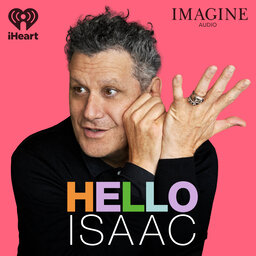Legendary Comedian & Host, Murray Hill
Isaac Mizrahi chats with trans icon, Murray Hill, about his conservative upbringing, how he discovered his persona, his biggest regret and more.
Follow Hello Isaac on @helloisaacpodcast on Instagram and TikTok, Isaac @imisaacmizrahi on Instagram and TikTok and Murray Hill on Instagram @murrayhill.
(Recorded on September 28, 2023)
 Hello Isaac with Isaac Mizrahi
Hello Isaac with Isaac Mizrahi


